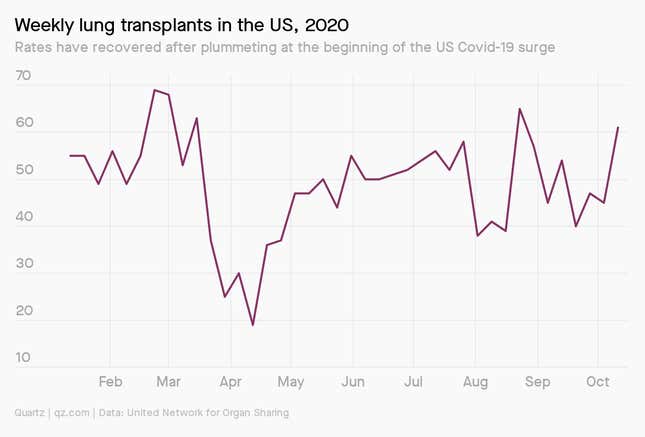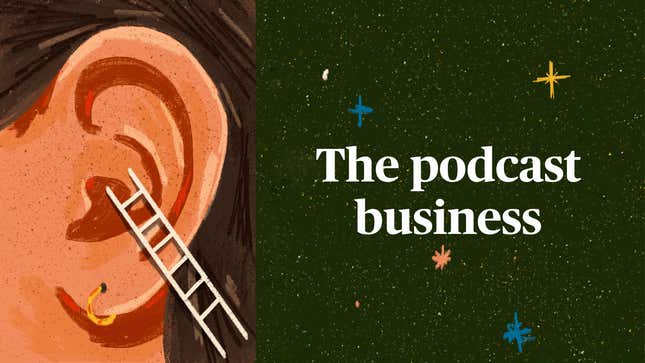Good morning, Quartz readers!
Here’s what you need to know
China’s economy continues its recovery. Its third-quarter GDP grew by nearly 5% from a year earlier, according to official data. This kind of growth rate is still a distant dream for all the other major Covid-hit economies—China’s manufacturing output is back at high levels after stringent lockdowns.
Chinese regulators approved the world’s largest IPO. The Financial Times and the Wall Street Journal (paywalls) report that Ant Group, the Chinese payments company controlled by Alibaba billionaire Jack Ma, has been cleared to proceed with the Hong Kong part of its dual-location, $30 billion IPO, with another listing in Shanghai to follow.
A government panel said India’s Covid epidemic may have peaked. Officially recorded daily cases and deaths are falling in the world’s second most populous country, but some experts are not convinced that the worst is over.
Shelling in Nagorno-Karabakh broke the latest ceasefire. Reports of renewed attacks in the territory, populated by ethnic Armenians but officially part of Azerbaijan, appeared to have undermined a deal brokered by Russia on Saturday. More than 1,000 people have been killed in the conflict.
What to watch for this week
Monday: US Fed chairman Jerome Powell gives a speech on digital currencies.
Tuesday: Israel and the United Arab Emirates sign a commercial aviation deal.
Wednesday: France holds a national tribute for Samuel Paty, the teacher who was beheaded in a terrorist attack last week; the European Parliament votes on legislation regulating how plant-based products are marketed; and the US Senate votes on a $500 billion stimulus bill.
Thursday: The final US presidential debate takes place in Tennessee.
Friday: Purchasing Managers’ Index reports are released for the euro zone, Japan, UK, and the US.
Saturday: Egypt holds its parliamentary elections.
Sunday: Ukraine holds nation-wide local elections, and Chile holds a constitutional referendum.
Charting lung transplants over the pandemic
Lung transplants have saved the lives of dozens of Covid-19 patients. But lengthy hospital stays and fears of re-infecting new lungs—which are always in short supply—raised fears in the medical community during the early days of the pandemic.

Lung transplants plummeted in those first months, but now that doctors better understand the disease’s progression, and how to keep Covid-19 patients sufficiently isolated, they’re on the rise again. Read more about how lung transplants can save some patients from severe Covid-19.
The Podcasting Business

More than 100 million people have listened to podcasts in the US this year. But podcasters are still unable to fully cash in because there’s still no good way to collect data on listeners for targeted advertisements. Now a slew of companies are deploying new solutions to bring these metrics up to speed and bring in big-brand ad dollars with them.
This transition is as old as the internet, where a freewheeling, do-it-yourself space evolved into the data-obsessed, tech giant-dominated sector we know today. But some podcast veterans say the same idiosyncratic, independent nature that has made some shows so successful gives the industry a better chance of avoiding that fate. Read more in this week’s field guide to the podcasting industry.
✦ Our best advice for avoiding a dark fate is to sign up for a Quartz membership today. Use the promo code QZTWENTY to unlock a 20% discount.
Obsession interlude: The Climate Economy
There is a lot at stake in the upcoming US election. The results will have worldwide implications and voters ought to think like global citizens when they cast their ballots. This dynamic is nowhere more clear than on the issue of climate change. Not just every voter, but every industry can be part of the solution—or part of the ongoing problem.
Here are some of the top reads from our updated Climate Economy obsession:
- 🔧 The story behind Biden’s plan to create climate jobs that pay “good union wages”.
- 🛢 Global fuel standards are pushing the dirtiest oil out of the market.
- 🇮🇳 Many Delhi residents suffer respiratory troubles as air quality drops 400%.
- 🇰🇪 Scientists are worried about the impact of Kenya’s Rift Valley lakes flooding.
Surprising discoveries
A giant cat is etched on a hill in Peru. The Nazca line is from between 200 BC and 100 BC, and was discovered during access work at the world heritage site.
You can buy a small share of a hit song. Hipgnosis, whose investors include the Church of England, has spent more than $1 billion snapping up the rights to thousands of radio-friendly records.
“No pain, no gain” is wrong. Ultra-endurance athletes may have a lower sensitivity to pain than other elite athletes.
Atari is back. The old-school video game company is launching its first console in over 20 years—and this one allows users to trade cryptocurrency.
“Flyover country” farmers depend on planes flying overhead. Less commercial airline traffic means less data, making it harder for meteorologists to forecast the optimal time to harvest sugar beets.
Correction: In Saturday’s Quartz Daily Brief, a reference to the article “The Science of Wisdom” by Igor Grossman mistakenly attributed its authorship to its editor, Pam Weintraub.
Our best wishes for a productive day. Please send any news, comments, best wishes to Virgil, and overripe sugar beets to hi@qz.com. Get the most out of Quartz by downloading our iOS app and becoming a member. Today’s Daily Brief was brought to you by Hasit Shah, Jackie Bischof, and Max Lockie.